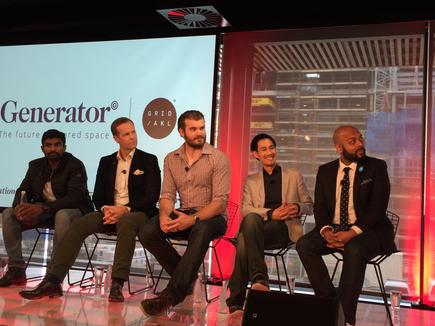Confessions of a serial tech entrepreneur
- 09 October, 2017 09:30
How do you focus on the most scalable ideas in a calculated and non-emotive fashion?
Nearly two years ago, I sold my majority stake in two of the three human capital firms I founded over the last 15 years.
Like most founder/entrepreneurs who go through this journey I ended up a bit lost (founder’s remorse I later understood this to be). This is the start of the story of how I did what I said I’d do two years ago: Start a disruptive tech company. I know you can too.
Around a year ago I contacted a group of four people I knew in technology in Auckland and asked them if they’d like to be part of a conversation. One that could potentially lead us to starting a business. Having known them and their aspirations for between three and 17 years, I knew they'd say yes.
Lesson number one is this: Starting a business is quicker and easier when you involve others in that journey. It's not necessarily better, but provided you have the right approach, you’ll get to where you want to be faster.
We started with a list of ideas. We all had them, I know you will too.
These are the things that sit in the back of your mind prefaced by statements like “wouldn’t it be great if…” or “what i’ve always wanted to do is…”.
These are the disruptive or genuine startup (doing something that hasn’t been done before) idea foundations. If this isn’t your desire or you’d rather take a proven path to market - look for something you know and care about and know that you can do it better or potentially cheaper than others. There’s nothing dishonourable about starting a business with a defined need and market - you already know that people want what you have!
Who are our competitors? Current and future likelihood? How many of them? Local or global? Are they obvious or disintermediated?
Once I had a group of thought partners, I created a spreadsheet that allowed us to quickly evaluate the business idea. Our list of evaluation points was:
What's the problem we’re solving? This is number one. If we couldn't articulate this clearly, none of the others matter.
Who’s the actual customer? I fall into the school of thought that says you need these people. Now, just like before.
An explanation of the business so others can get it (like an elevator pitch).
What are the markets? Are they global (harder but of course bigger) or local? Is it consumer or business (including government)? Will you find them directly or through a channel?
What’s the most likely and biggest challenge with this business? What’s going to stop us from achieving our objective? *You obviously need to know your objective here - build a profitable big or small business? Build something for sale? A side income?
Who are the key team members that will drive success? Not necessarily the individual but the role. Is it technical, distribution, intellectual property, sales, etc?
How likely are investors to respond positively and give us some of their money? You’ll probably need someone else’s money, and ideally, their intellectual input.
Who are our competitors? Current and future likelihood? How many of them? Local or global? Are they obvious or disintermediated?
How to make it a huge f&*$ing success? Scale - i.e. Getting users? Landing a range of customers at each level? Finding a few elephants or a tonne of mice? Something different?
If we wanted to sell, what's the real likelihood of the business being acquired? And what does that acquiring company/VC/individual look like? Why would they buy our business? The common reasons for people buying a business are: intellectual property, customers, our data or the people.
What's our knowledge of this area? Did we know all the criteria listed here or are we going to be swimming around in the dark?
What are the threats to success and also our reservations? One is business, the other personal. For example, how likely is a big competitor to cut my lunch? If they would, how would we recover from that event? What's the thing that would drive us to work 70 to 80 hours a week, every week until we achieved our goals?
Once the spreadsheet was populated, it was obvious which ideas we should focus on through a structured planning workshop - a modified business model canvas.
This analysis was invaluable, it enabled us to focus on the most scalable ideas in a calculated and non-emotive fashion. Ultimately it led us to building an enterprise grade conversational artificial intelligence platform.
Josh Comrie is a board director, hi-tech investor and the CEO and co-founder of AmbitAI.

Follow CIO New Zealand on Twitter:@cio_nz
Sign up for CIO newsletters for regular updates on CIO news, views and events.


